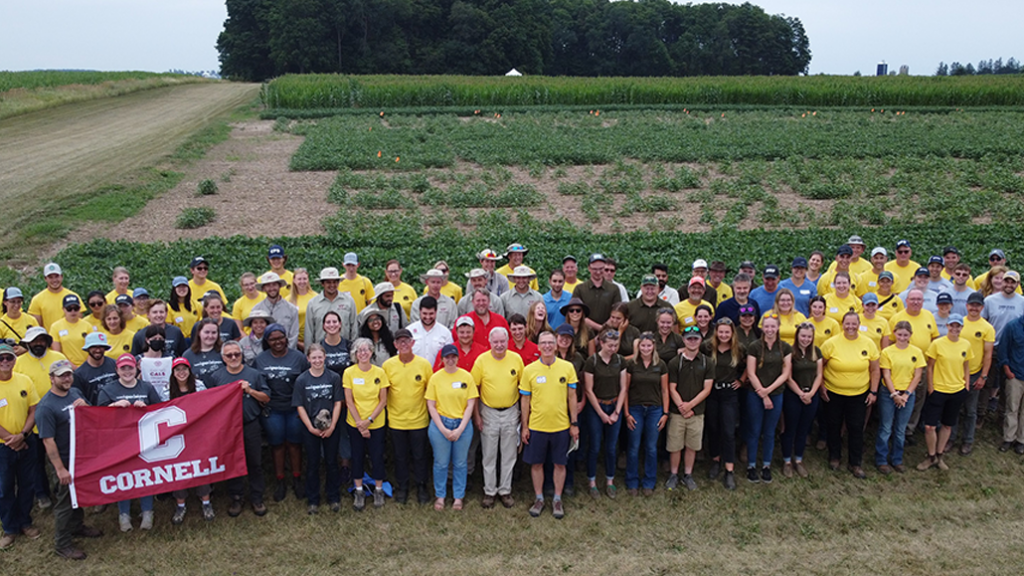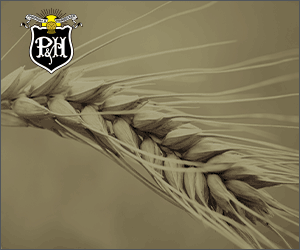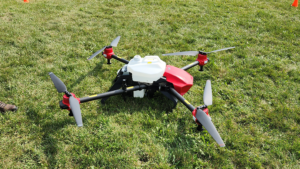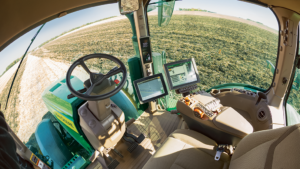Weed Olympics
ANNUAL COLLEGIATE EVENT HOSTED IN ONTARIO

FOR THE FIRST time in more than 20 years, the “Weed Olympics” was held in Canada — with more than 60 students from seven universities participating in a competition that has its roots going back decades.
The Northeastern Collegiate Weed Science Society (NEWSS) Weed Contest was held on July 27, 2022, at Syngenta Canada’s Honeywood Research facility in Plattsville, Ontario. Cohosted by Syngenta and the University of Guelph (UofG), the annual event was initially planned for the summer of 2020 but, like so many other events, was postponed due to the Covid-19 pandemic.
The University of Guelph contingent included undergraduate and graduate teams of three who studied and prepared for months leading up to the competition and was the only Canadian university to compete against students from U.S. agricultural universities, including North Carolina State, Penn State, and Cornell.
Throughout the day-long competition, the weed science students were judged on their ability to correctly identify weeds at various stages of growth and identify herbicide application in different crops based on visual symptoms; they participated in a sprayer calibration challenge that included calculating spray volume, herbicide rate, nozzle selection, boom height, and application speed; and lastly, they took part in an in-field problem-solving exercise, where competitors were presented with a real-life, in-field scenario and had to come up with solutions to solve the problem.
Guelph students placed second and third in the undergraduate team categories, with graduate students Karen Reymer and Corine Bateman taking home second and third place in the individual category.
REAL-LIFE EXPERIENCE
For University of Guelph graduate student Emily Duenk, the event was a welcome opportunity to put her knowledge and skills from the classroom to the test. Duenk, who graduated with a degree in agricultural science from the University of Guelph in 2020, is now studying weed control in E3 soybeans with Dr. Peter Sikkema at the Ridgetown Campus. Duenk was a returnee to UofG’s weeds team, having competed as an undergraduate student in 2019 at the North American Weed Science Contest in Champaign, Illinois.
“I really liked the practical component of the contest,” says Duenk. “I am focused on my research right now, but preparing for the contest helped me broaden my understanding of other areas of weed science and agronomy in Ontario.”
The team’s coach, Dr. Francois Tardif, a professor in the plant agriculture department at UofG, says that the opportunity for students to apply what they’ve learned in the classroom in a practical way is one of the reasons that so many students want to get involved.
“The students have a limited amount of time to solve a problem,” says Tardif, “that’s like real life; they have to figure it out.”
Team members started practicing at weekly sessions during the school year and continued into the summer — which demanded a significant commitment since many of the students were busy working at internships, summer jobs, or on their family farms over the summer months.
INDUSTRY SUPPORT
Tardif says that industry support has been critical to the ongoing success of the weeds team, with sponsorship coming from organizations like Grain Farmers of Ontario. Syngenta Canada’s contribution as a cohost and volunteer support from more than 70 people from across the industry helped make the 2022 event a success.
“It is exciting to see these future weed scientists in action. It is really encouraging for our industry and for farmers who will ultimately benefit from their skills,” says Harold Wright, president of the Canadian Weed Science Society and technical research and development manager with Syngenta Canada.
One of the volunteers at the event was Dr. Clarence Swanton, a UofG Professor Emeritus, who coached the team through the 80’s until his retirement in 2019. As part of the in-field problem solving event, Swanton role-played as a farmer experiencing a herbicide failure. As he explained in a video with RealAgriculture.com, his job was to “…get the students to sleuth out exactly what happened, to give me a solution to do today as a grower, and what I need to do next year.”
UofG undergraduate student Sophia Marsig, now in her final year studying agricultural science, says that the in-field problem solving event was the one she enjoyed — and learned from — the most.
“I’ve never had that experience, interacting with a grower like that,” she says. “I was able to apply my knowledge and past experience to a real-life scenario.”
Marsig’s team went on to place third in the undergraduate team category. •

























